Tech funders changing philanthropy featuring Priscilla Chan & Darren Walker
Transcript
[The new toolbox for social change: technology, advocacy, and philanthropy. Priscilla Chan, co-founder and co-CEO, Chan Zuckerberg Initiative. A first-generation Asian American woman wearing a violet-colored dress. Darren Walker, president, Ford Foundation. An African American man wearing glasses and a light blue dress shirt with gray pants.]
ANNOUNCER: Please welcome Priscilla Chan and Darren Walker.
[applause]
DARREN WALKER: Priscilla Chan.
PRISCILLA CHAN: Hi, everyone.
DARREN WALKER: CZI, the Chan Zuckerberg Initiative, which you started with your husband, in a way to actually honor the birth of your daughter.
PRISCILLA CHAN: Yeah.
DARREN WALKER: Talk about that.
PRISCILLA CHAN: So, a little more than four years ago now, we were finally pregnant—we had a number of miscarriages. And then we had, I think, a very human experience of, oh my god, it’s happening now. We are deeply unprepared. And we went into nesting mode, and then it, like, spiraled. Because it was like, do we have the crib? Is the world going to be okay?
[laughter]
PRISCILLA CHAN: And so we started thinking, like, oh my gosh, she’s coming. She’s going to be raised in the world around us, and there’s so much progress that needs to be made. And we want to be a part of that. And so we always knew we were going to give back. We always knew we had a tremendous responsibility with the good fortune that we’ve had in our lives, but we thought it would come later. But that moment of panic—of, like, we need to do something to advance medicine, we need to do something to improve education, we need to build systems that are just in our country—that became very urgent when we realized that the future was now. And so that’s when we launched CZI, and we had the exciting opportunity to give back while we were still young, still in the prime of our careers, and wanted to bring more than just capital. And for me it was really being on the frontlines. I’ve always known that I was going to be in service. I was an after-school teacher, elementary school teacher, and then a pediatrician in our San Francisco safety net hospital. And I love being on the frontlines. It gives me gratitude for all that I have in my life and—the satisfaction of serving, but it’s also frustrating. I see all the problems on the frontline, and it’s hard. The people who do well are the ones who’ve gotten lucky, not because our systems are doing well and serving people. And for Mark, he’s—he has the skill set of building technology that can actually scale to serve the needs of many, not just the lucky few. And we thought, how can we merge these two things in addition to the incredible opportunity we have to give back our resources to actually do something a little different to make sure that we’re serving a niche?
DARREN WALKER: Yes. And—and you really did [applause] think very intentionally about how you embed technology into human-centered solutions.
PRISCILLA CHAN: Yeah.
DARREN WALKER: So talk about how you embed technology into CZI’s strategy.
PRISCILLA CHAN: So about half of our organization is, uh, technical. And I can tell you, recruiting in Silicon Valley is brutal.
DARREN WALKER: Why is it brutal?
PRISCILLA CHAN: Oh my god, there’s companies like Facebook, [laughter] Google—they’re always trying to recruit our people. But it’s this realization that was part of the founding of CZI—is how do we bring the tools that we expect, being able to use technology to make a scientist’s life better, to make an educator’s life better, to hold accountability in the criminal justice system. Those don’t exist. And our role is not to invent that, because there are folks—practitioners on the frontlines that we partner with—that have those great breakthroughs. They have an amazing pilot program in their lab, or in their classroom. We see our role as embedding industry-standard technology teams to help make those systems stronger, better, more shareable. I’ll give you one example. We partnered with this fantastic scientist named Joe DeRisi. He built a program where you take a blood sample, you sequence it, you remove all the human DNA, and we take the remaining genetic sequence and map it to known infectious diseases. And it tells you, without any prior guess, what you might be sick with. It’s fantastic, and I promise it actually works. But—couldn’t scale. And we partnered with Joe and his lab, and we put a team of 11 product managers, engineers, designers, user researchers, to actually ask the question of, if we wanted many people to have access to this, what would we actually do? And we hardened it. People across the globe can use it, and we’ve changed the cost from $200 to about $20 each time. We’re partnering with Gates Foundation to make it so that we’re using it right now as a global health epidemic monitoring tool. So, right now we have 10 groups across the globe who are trained up on how to use these machines that actually a lot of them have and have no idea how to use. So they go to Joe’s lab, we train them on how to use the technology, and we’re using it to surveil—like, is chikungunya coming back to Bangladesh? If it is, what strain is it? Are there mutations in this that can tell us how to better treat this? It’s about making every scientist better at their job. And we think tools are the keys to actually seeing the world differently, making discoveries, and accelerating the way that we can advance science and advance medicine. But that’s an example of a very niche thing that we think we are uniquely suited to do in a broader ecosystem that involves other philanthropies, involve other governments and universities. And we get really excited about playing our role.
DARREN WALKER: You guys have done the Giving Pledge.
PRISCILLA CHAN: Mm-hmm.
DARREN WALKER: You are enormously generous. How do you think about this idea of justice? You are a trained physician. Your husband is a technologist. Do you think about justice in your work as a philanthropist?
PRISCILLA CHAN: Every day. Um, I’m—I can’t not. Uh, I’m going—after this I’m going to Boston to see my family where I grew up. And, um, you know, my mom lives, uh, in like a 600-square-foot house. And I grew up in a working-class town where—actually, if you’ve ever seen the movie “Good Will Hunting,” that’s literally where I grew up. Matt Damon was not my neighbor, because he actually grew up in a nicer part of town. But I’m—I’m always grappling with my privilege and how unfair it is that I get to live the life that I have. And, um, those who, you know, worked on my right and left who were just as smart oftentimes don’t have those opportunities. And even before CZI was a thing, I knew I was going to give back. I already knew that as the child of refugees, I’d been lucky beyond my wildest dreams. And I try to embed that value of staying close to the work, staying close to the frontlines. So I still have—uh, for me, that—I still have a reading group at a school that I founded. I work with five-year-olds on how to read. I’m in clinic at our safety net hospital once a month, because that’s what fuels me in wanting to do this work and hopefully makes me better at my job and makes each person at CZI a little bit more powerful.
DARREN WALKER: So the thing that Priscilla Chan manifests is humility and authenticity, because you have always been the person you are today, a person committed to building a world that is more just and fair, a person who recognizes that you have been very lucky and very fortunate—and that your responsibility is to spread that fortune, and to ensure that others benefit from your privilege, and that you build the world that we all want to see. Please join me in thanking Priscilla Chan.
[applause]
[New gospel of wealth. What does #GenerosityToJustice look like to you? Ford Foundation dot org forward slash new gospel.]
Accessibility Statement
- All videos produced by the Ford Foundation since 2020 include captions and downloadable transcripts. For videos where visuals require additional understanding, we offer audio-described versions.
- We are continuing to make videos produced prior to 2020 accessible.
- Videos from third-party sources (those not produced by the Ford Foundation) may not have captions, accessible transcripts, or audio descriptions.
- To improve accessibility beyond our site, we’ve created a free video accessibility WordPress plug-in.
Priscilla Chan, co-founder and co-CEO of the Chan Zuckerberg Initiative, on creating innovative solutions with organizers and activists to tackle complex challenges of our time.
“Our role is not to invent [new systems]…We see our role as embedding industry-standard technology teams to help make those systems stronger.”
– Priscilla Chan
Learn more about New Gospel of Wealth
Other videos in this series
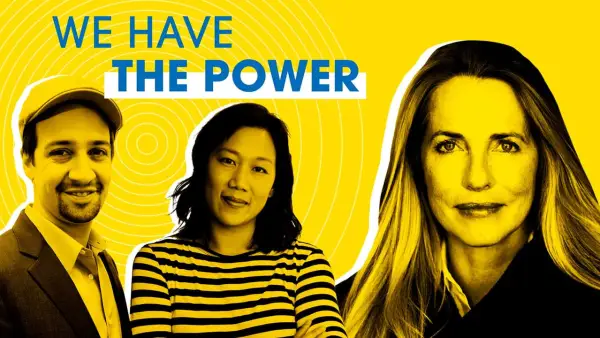
Let’s rethink giving
How can we reimagine philanthropy so that we create a future where there is justice and dignity for all? What are the root causes of the issues and how do we encourage the participation of many and not just a few?
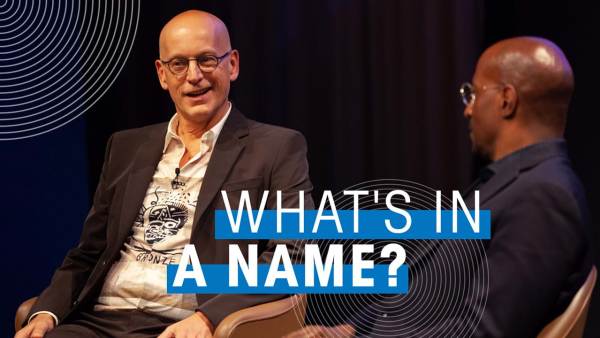
The power of a name featuring Jon Stryker and Van Jones
As a philanthropist, Jon Stryker, president of the Arcus Foundation, believes the act of naming gives power and influence to the work that is supported through his gifts. His philanthropy supports those on the frontlines of justice, providing resources and power to those who need it most.
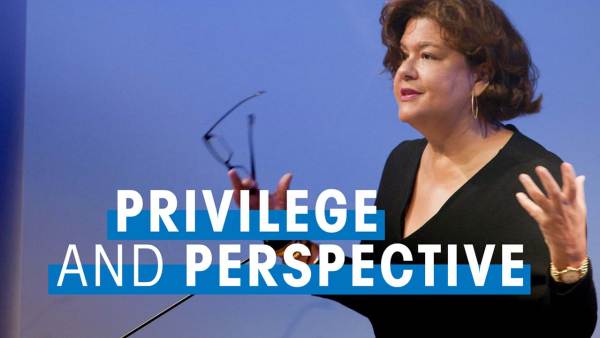
The privilege of perspective featuring Elizabeth Alexander
Elizabeth Alexander, president of the Andrew W. Mellon Foundation, on art, activism, and acknowledging adversity.
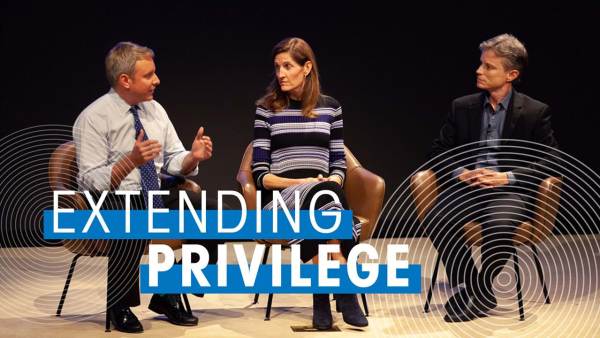
Extending privilege featuring Valerie Rockefeller and Henry Ford III
Henry Ford III, trustee of the Ford Foundation, and Valerie Rockefeller, chair of the Rockefeller Brothers Fund, discuss transforming philanthropy for the 21st century. The families have seen the value of impact investing and believe in partnerships to increase the difference that can be made.
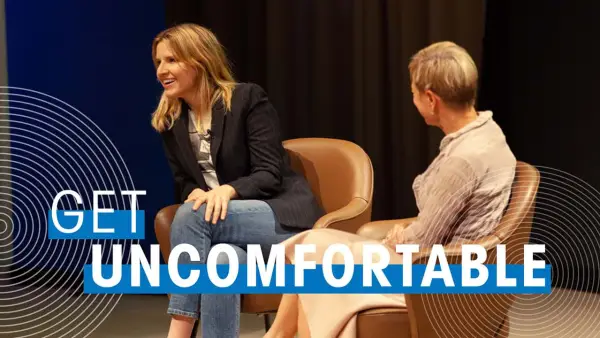
Getting proximate featuring Tara Westover and Hilary Pennington
Tara Westover, author of “Educated,” sees a disconnect between the rural and urban parts of the United States. She believes philanthropists need to be more proximate to the issues they care about, and that spending time with people who aren’t like you is key to disrupting inequality.
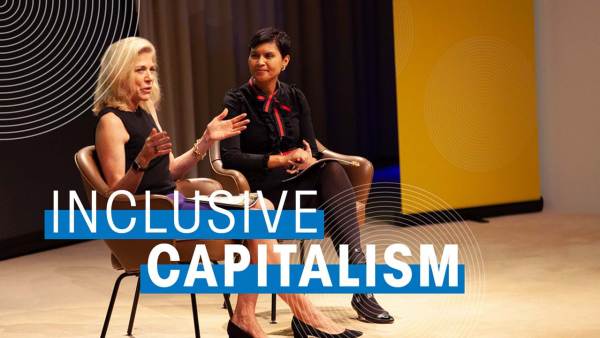
Can capitalism ever really be inclusive? featuring Lynn Forester de Rothschild and Stephanie Mehta
The top 1 percent of the United States controls 42 percent of the national wealth. Lynn Forester de Rothschild, founder of the Center for Inclusive Capitalism, explains that reimagining the economy and making it a sustainable, inclusive system that leads to strong economic growth requires reform.
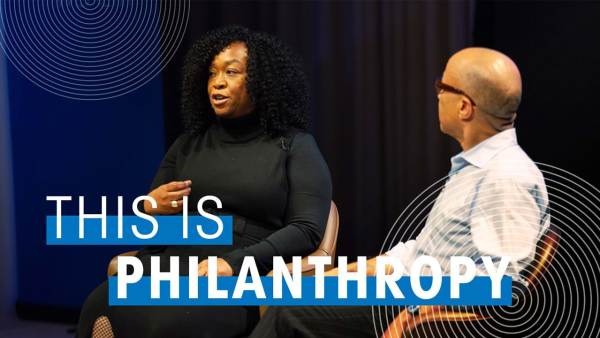
This is what a philanthropist looks like featuring Shonda Rhimes and Darren Walker
Writer and producer Shonda Rhimes has seen the power storytelling has to make change through her work, which centers marginalized people and issues. Rhimes believes philanthropy sets an example others can follow, and says supporting organizations that are already on the ground doing the work is key.
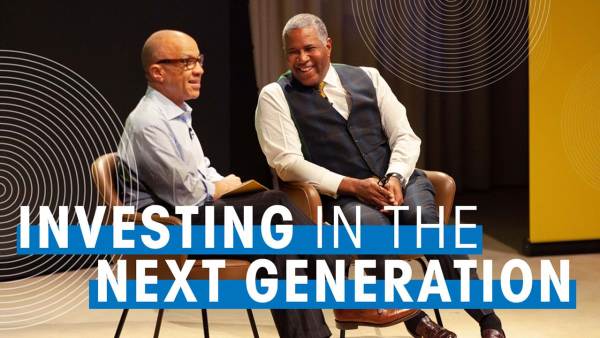
Catalyzing the potential of our time featuring Robert Smith and Darren Walker
Through philanthropy, Robert Smith, CEO of Vista Equity Partners, has alleviated the burden of student debt for a graduating class. He says private philanthropy can help address public policy challenges, such as student loan debt, and is a disruptive opportunity that liberates people to contribute to society in positive ways.
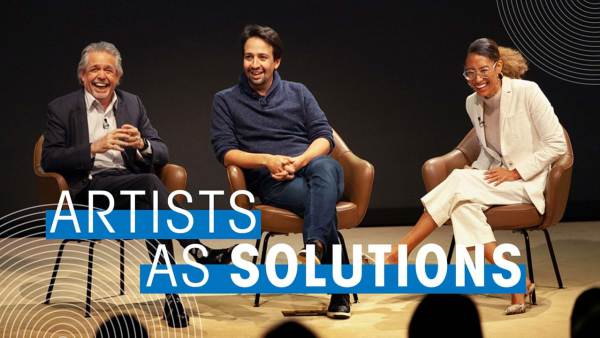
Why artists shouldn’t stay in their lane featuring Lin-Manuel Miranda, Luis Miranda Jr. and Elaine Welteroth
Composer and actor Lin-Manuel Miranda believes all art is political. He and his father, Luis A. Miranda Jr. of the MirRam Group, see the value philanthropy has to empower communities that may have been neglected, and allow them to share their stories through the arts, like Puerto Rico did after…
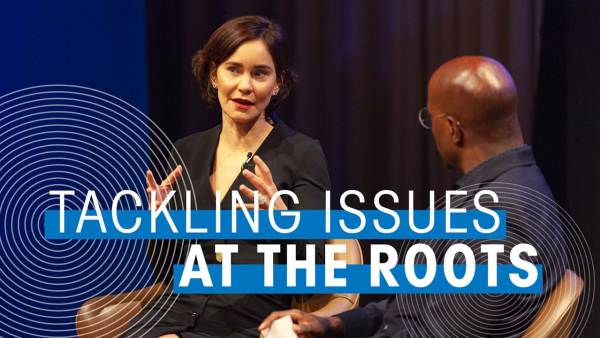
Good philanthropy needs government featuring Laura Arnold and Van Jones
Laura Arnold, co-chair of Arnold Ventures, believes policy change is the lever that will lead to sustainable change. She says we need to attack the systems that are creating the injustices we see, like criminal justice. Philanthropy can create better alternatives that governments can adopt.
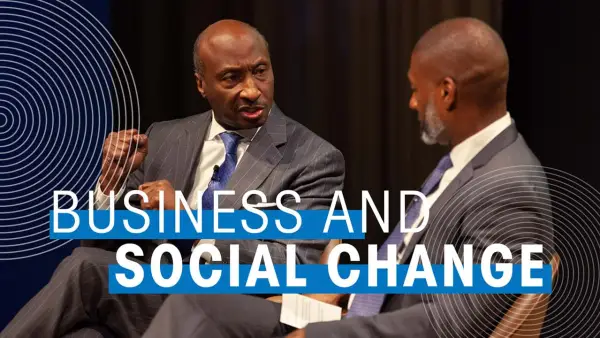
The business of justice featuring Kenneth Frazier and Charles Blow
Kenneth Frazier, CEO of Merck and Co, believes one of the greatest injustices in our society is the health disparities experienced by women of color. A zip code is more likely to determine health outcomes than genetic code. Frazier uses philanthropy to address mortality rate and wants to see more…
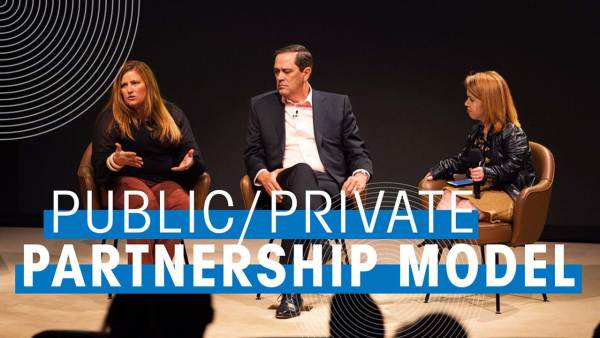
Public-private partnership: A new model for lasting impact featuring Jennifer Loving and Chuck Robbins
Jennifer Loving, CEO of Destination: Home, says a public-private partnership, like the one between her nonprofit and Cisco, headed by Chuck Robbins, can help create a model for the future of philanthropy, and tools like social bonds can help address some of the biggest crises of our time.
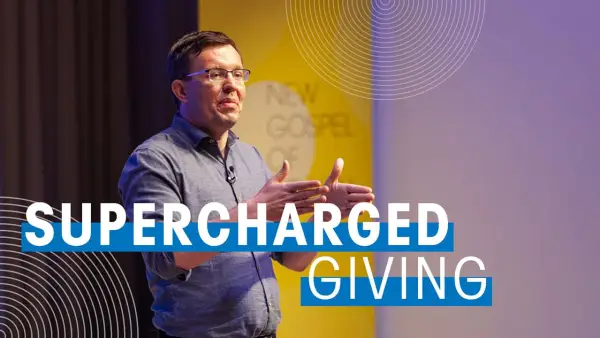
The new power of philanthropy featuring Henry Timms
CEO of Lincoln Center Henry Timms asks how philanthropy can supercharge civic engagement. Timms, who started Giving Tuesday, says trust-based philanthropy needs to shift from generosity to justice, driving more participation from more people, and encouraging meaningful ways to participate and collaborate.
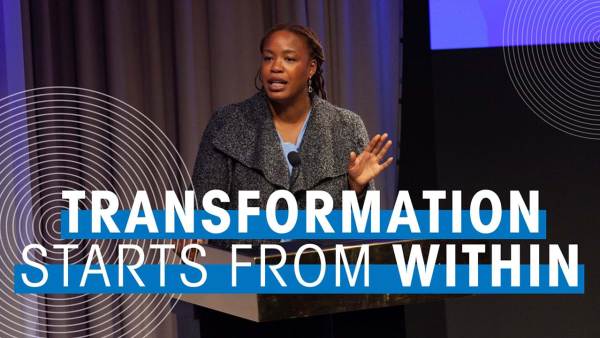
Transforming organizations from the inside featuring Heather McGhee
Heather McGhee, distinguished senior fellow at Demos, shares her experience of working to make the Demos think tank more diverse and led by people of color. Institutional racism, however slight, drives inequality, she says, so transformation needs to be a must-have and not a nice-to-have.
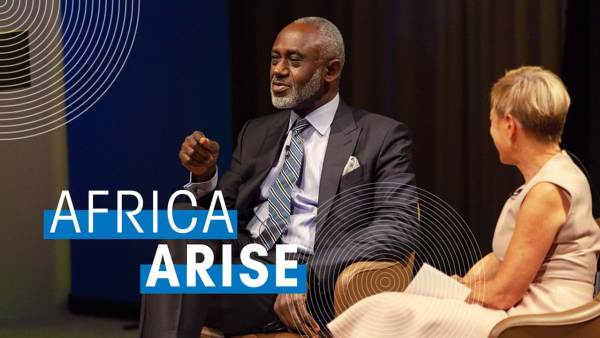
Africa, your time is now featuring Gbenga Oyebode and Hilary Pennington
Ford Foundation trustee Gbenga Oyebode has seen the value of impact investing on the African continent. He believes philanthropy should not just be giving, but investing with a social impact and an economic return. Giving is inherently part of African culture, but needs to be more strategic and collaborative.
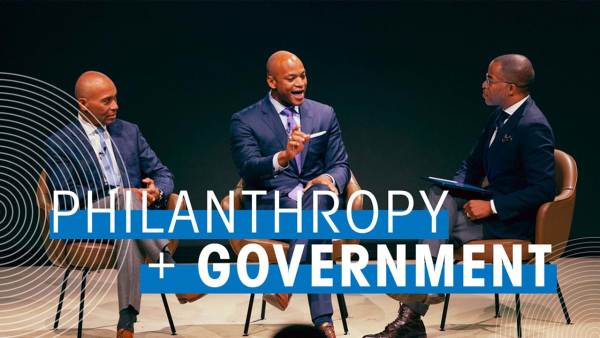
Why good government needs philanthropy featuring Deval Patrick and Wes Moore with Jonathan Capehart
Wes Moore, CEO of Robin Hood, and Deval Patrick, managing director of Bain Capital, see philanthropy working hand-in-hand with government in the fight for equality. Philanthropy can often provide the initial capital needed while government can take over and scale the solution.
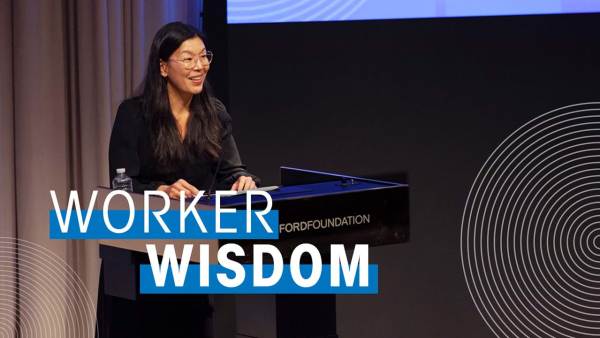
Bringing hidden labor to light featuring Ai-Jen Poo
Ai-jen Poo, executive director of the National Domestic Workers Alliance, says the sector of caregivers and domestic workers continues to grow. Building a future of work that works for all is centered on justice-based philanthropy and not a generosity model.
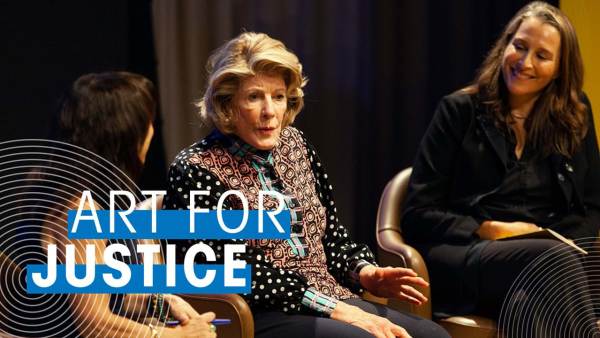
Art for Justice featuring Agnes Gund and Catherine Gund with Maria Hinojosa
The Art for Justice fund was created to help end mass incarceration. Founder Agnes Gund says philanthropy is about addressing issues like this. Catherine Gund believes art has an important part to play in the fight for racial justice and can help change the policies that led to mass incarceration.
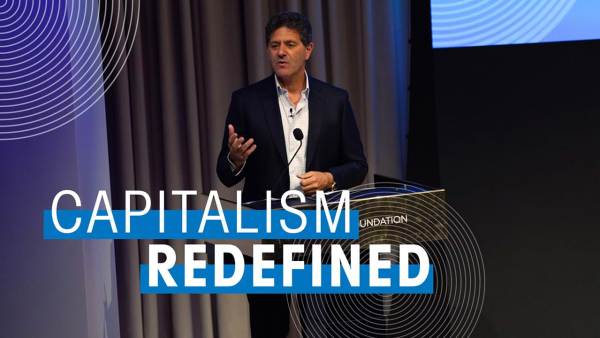
Capitalism redefined featuring Nick Hanauer
Entrepreneur Nick Hanauer asks us to reimagine the economy. He believes we need to change our beliefs about the economy to create a more just, more equitable society for all. By choosing better economic beliefs, we can change society for good.
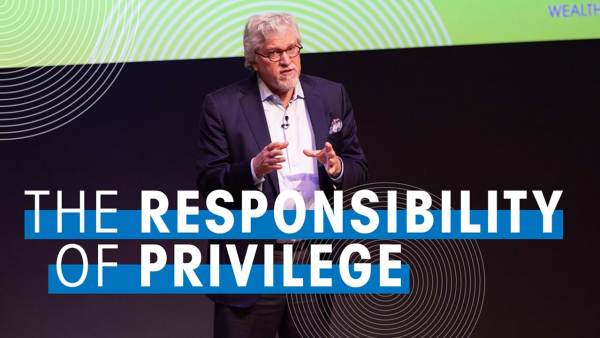
On using power and privilege for change featuring Jeff Raikes
Jeff Raikes, co-founder of the Raikes Foundation, says dismantling racism requires philanthropy to ditch its colorblind approach. People in power need to acknowledge that privilege is invisible to those who possess it. Privilege and power need to be transformed into a force for changing our society for the better.